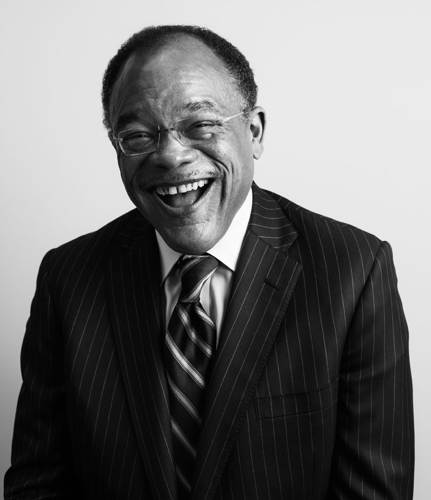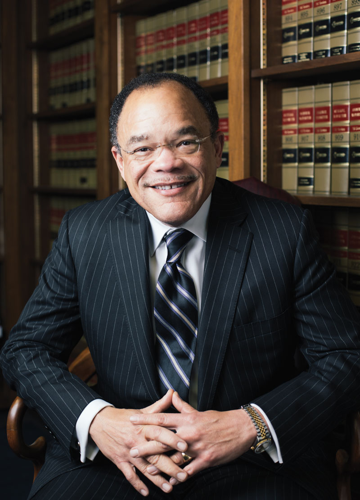
Waverly Crenshaw, a Nashville native, was the first black attorney and partner at white-shoe Nashville firm Waller Lansden Dortch & Davis, before Barack Obama nominated him to a federal judgeship here. He’s set to take on the role of chief judge next month, just a year after the U.S. Senate confirmed him to the bench.
When Judge Kevin Sharp leaves, your load will increase to around 900 cases. Why did you take on this job, leaving Waller for a seemingly much tougher job? It’s certainly a challenging job with difficult decisions, but it’s also very rewarding. When the opportunity came along I was aware that this district court has an incredible history. It was from this court that Baker v. Carr, which ended up being one-man-one-vote, originated and went to the Supreme Court. Judge L. Clure Morton and Judge [Tom] Wiseman oversaw the desegregation of the Nashville public education system. And then more recently Judge [Aleta] Trauger ruled on the gay marriage ban that went to the Supreme Court. This is a court that’s had some great judges, and the opportunity to contribute to what they have done was attractive to me.
You mentioned some of those high-profile cases, like the gay marriage ruling Judge Trauger made, and the current White House has not shied away from criticizing members of the federal judiciary. Does that level of attention make your job harder? It doesn’t necessarily make it more difficult, but it does alert us to the public perception of the court. At least for me, and I think for most justices, what we want the public to perceive is, especially in federal court, that this is a forum that is fair, the people get an ample opportunity to present their case, tell their story, and it’s going to be listened to by a judge who is going to be unbiased and make a decision based upon the law.
What is your role in oversight of the other two branches of government? The judiciary is a coequal branch of the government. There are hard decisions that may be unpopular, and certainly judges are aware of that, but on the federal level, the fact that we are appointed for life and the fact that we are so committed to being an independent part of the government is just part of the way our country’s made. Federal judges may tell Congress, “This statute has some ambiguity in it that needs to be clarified,” or federal courts may tell Congress a statute is unconstitutional. The same thing goes with actions of the executive branch.

What about race relations in Nashville has changed for the better, and what is there still to do? When I came out of law school, the large firms didn’t have black lawyers at all, and maybe one female. That was it. Now you do have a number of the major law firms in Nashville that have diverse lawyers. I think we can do better on the partners in the firms, but at least we have opportunities now. Although I think we’ve made tremendous progress, there’s still a ways to go. The real progress will be when diversity is a standing item on managing committees or boards of companies. You simply get a richer, more robust work product. If we’ve all had the same experiences, grown up in the same community, gone to the same schools, it’s pretty hard.






